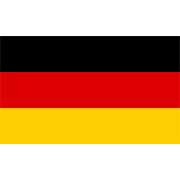Fiscal subject related
Exceptions to the Sunday and holiday closing requirement are only granted for certain categories of stores, including:
- Retail stores at airports, train stations, and other transportation facilities
- Stores that sell souvenirs, books, and other similar items at tourist destinations
- Gas stations and stores at gas stations
- Bakeries, flower shops, and other stores that sell food and essential household items, with a sales area of less than 100 square meters
- Stores that are open for cultural or entertainment purposes, such as museums, theaters, and cinemas
However, even for these exceptions, there are strict rules regarding the opening hours and conditions for operation on Sundays and public holidays. In general, stores are only allowed to be open for a limited time, usually between 6 a.m. and 10 p.m., and employees who work on Sundays and public holidays are entitled to extra pay or a compensatory day off.
The law on shop opening hours also applies to online retailers, who are generally not allowed to deliver goods on Sundays and public holidays, except for certain categories of items, such as fresh food, flowers, and newspapers.
There are some regional variations in the application of the law on shop opening hours, as the regulation of retail sales is a matter of state legislation. For example, in Berlin, stores are allowed to be open on four Sundays per year, while in Bavaria, stores are generally closed on all Sundays and public holidays.
Overall, the rules for store opening hours in Germany are strict and complex, but they serve important purposes in protecting the rights of employees and promoting social and cultural values.
Other news from Germany
Permanent Reduction in the Restaurant Sales Tax on Food from 2026 in Germany
 Germany
Author: Ivana Picajkić
Germany
Author: Ivana Picajkić
Starting January 1, 2026, VAT on restaurant food will be permanently reduced to 7%. This change is part of the 2025 coalition agreement between CDU/CSU and SPD. To make it official, the VAT law will need to be updated in 2025. However, the government will need to cover the cost of this tax cut in future budgets. The reduced VAT is expected to save businesses about €3.5 billion each year, but... Read more



„Germany Pays Digitally “ Initiative: Digital Payments May Soon Be Mandatory
 Germany
Author: Ivana Picajkić
Germany
Author: Ivana Picajkić
Although over 70% of German consumers prefer digital payments, many small businesses still don’t accept them—unlike peers in countries like Sweden and the Netherlands. Read more



Reminder: Small Businesses Must Be Able to Receive and Store E-Invoices in Germany
 Germany
Author: Ivana Picajkić
Germany
Author: Ivana Picajkić
Starting January 1, 2025, small businesses in Germany must be able to receive and archive electronic invoices, even if they are not required to issue them. Read more



Germany: Peppol BIS Billing 3.0 and XRechnung Now Interchangeable for E-Invoicing
 Germany
Author: Ivana Picajkić
Germany
Author: Ivana Picajkić
Germany now recognizes Peppol BIS Billing 3.0 and XRechnung as functionally equivalent for e-invoicing public authorities, giving businesses the flexibility to use either format. Read more



Germany to Reintroduce 7% Reduced VAT for Hospitality Food Sales in 2026
 Germany
Author: Ivana Picajkić
Germany
Author: Ivana Picajkić
On April 9, 2024, Germany’s coalition government announced that the reduced 7% VAT rate for restaurant and café food will return on January 1, 2026. Originally introduced in 2020 as a COVID-19 relief measure, the rate had expired in early 2024. Its reinstatement is part of the government’s broader economic strategy. On April 9, 2024, Germany’s new coalition government (CDU and SPD) announced... Read more



New document was uploaded: S4F backoffice patch
S4F backoffice patch is intended for users who have already installed S4F backoffice and are intended to update existing installations to latest version. To do so apply only patches that are marked with version number that is newer than your currently installed instance of backoffice. Read more



Germany: End of TSS Certificates in 2025 – Overview
 Germany
Author: Ivana Picajkić
Germany
Author: Ivana Picajkić
Starting in 2025, many German businesses using hardware-based technical security systems (TSS) for cash registers will face expiring certificates issued under the 2020 Cash Register Security Ordinance. Read more


